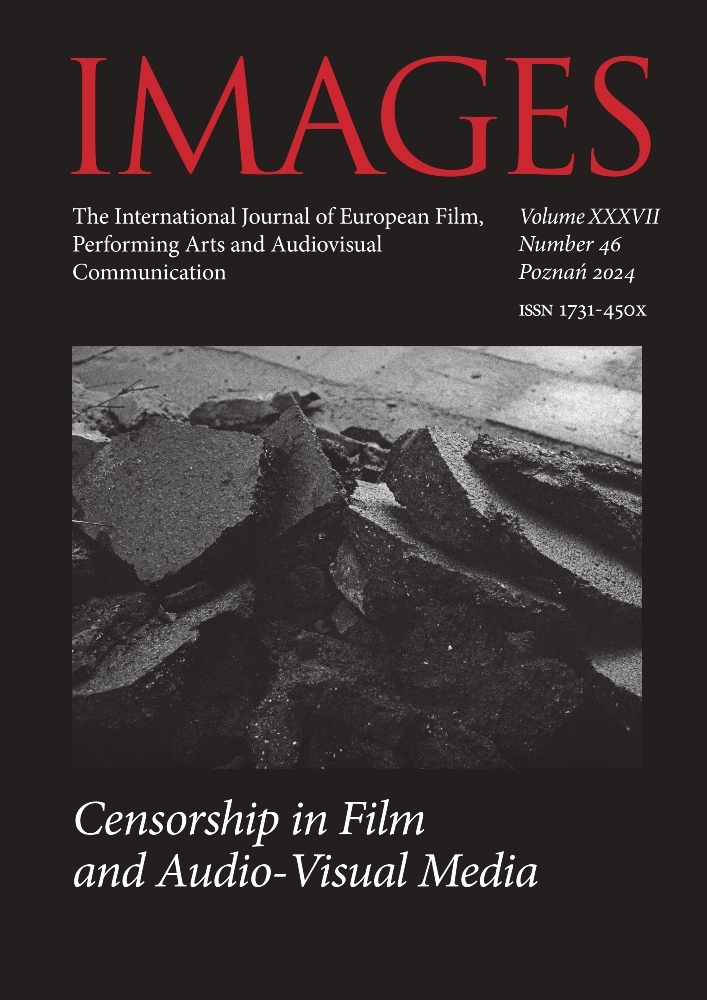Abstrakt
Hong Kong’s film censorship had become completely apolitical on the eve of the city’s change of sovereignty from Britain to China in 1997. This paper will review film censorship practices in the early handover period, drawing from the first-hand experience of the author, who was a public officer working in the film censorship institution. It will examine how film censorship practices in Hong Kong have changed to reintroduce political censorship following the Chinese government’s tightened grip over this former British colony, such as imposing the National Security Law (NSL) prompted by a massive civic movement in 2019. Political censorship has begun to manifest in a more covert manner within the film industry. Filmmakers, distributors, and screening organisers are finding ways to navigate the tightened censorship, ranging from circulating works overseas to incorporating acts of censorship as part of the creative process. The dynamics between the state’s control, the industry’s collaboration, and the filmmakers’ reactions are collectively shaping the evolving landscape of Hong Kong cinema under a mutating political environment in the post-NSL Hong Kong.
Bibliografia
At Least 22 Films Cancelled Screenings due to Film Censorship Issues [近年至少 22 影 片因電檢取消放映], Wave, 12.09.2023, https://wavezinehk.com/2023/09/12/censorship/ (accessed: 24.01.2024).
Barbieri Marias, Film Censorship in Hong Kong, M.Phil. thesis, University of Hong Kong, Hong Kong 1997.
Brzeski Patrick, Ritman Alex, How a ‘Pooh’ Slasher Flick May Have Tipped Hong Kong Towards Greater Beijing Censorship, “The Hollywood Reporter” 24.03.2023, https://www.hollywoodreporter.com/movies/movie-news/winnie-the-pooh-blood-and-honey-hong-kong-beijing-censorship-1235359823 (accessed: 25.01.2024).
Chau Candice, Hong Kong Gov’t Officials Visit Medical Union to Warn against Tiananmen Massacre Doc Screenings, Hong Kong Free Press, 28.05.2021, https://hongkongfp.com/2021/05/28/hong-kong-govt-officials-visit-medical-unionto-warn-against-tiananmen-massacre-doc-screenings/ (accessed: 24.01.2024).
Cheng Selina, Private Screening of Hong Kong Protest Doc May Be ‘Inciting Terrorism,’ Claims Lawmaker, Urging Police Action, “Hong Kong Free Press”, 22.04.2021, https://hongkongfp.com/2021/04/22/private-screening-of-hong-kong-protest-doc-may-be-inciting-terrorism-claims-lawmaker-urging-police-action/ (accessed: 24.01.2024).
Between Home and World: A Reader in Hong Kong Cinema, eds. Esther M.K. Cheung, Yiu Wai Chu, Oxford University Press, Hong Kong 2004.
Cheung Ruby, Hong Kong’s New Indie Cinema, Palgrave Macmillan, Cham 2023. DOI: https://doi.org/10.1007/978-3-031-25767-4
Chu Yiu-wai, Toward a New Hong Kong Cinema: beyond Mainland–Hong Kong co-productions, “Journal of Chinese Cinemas” 2015, no. 9(2), pp. 111–124. DOI: https://doi.org/10.1080/17508061.2014.994352
Government Points Out the Amended Film Censorship Ordinance Covers Screenings of All Kinds [政府指電影檢查修訂條例涵蓋所有形式的放映], Now News, 20.09.2021, https://news.now.com/home/local/player?newsId=450527&fb-clid=IwAR1D6TZ_5R62uQSqXUBwF5wVQ0fodZ6QzqhMtA_33c1GORTdGW3fXe7esP0 (accessed: 24.01.2024).
Ng Kenny K.K. [吳國坤], Inhibition vs. Exhibition: Political Censorship of Chinese and Foreign Cinemas in Postwar Hong Kong, “Journal of Chinese Cinemas” 2008, no. 2(1), pp. 23–35. DOI: https://doi.org/10.1386/jcc.2.1.23_1
Ng Kenny K.K., Yesterday, Today, Tomorrow: Mainland and Hong Kong Cinema’s Politics, Art and Tradition [昨天今天明天:內地與香港電影的政治、藝術 與傳統], Chung Hwa Book Company, Hong Kong 2021.
Order from Film Censorship Authority, 3 Fresh Wave Films has “Black Screens”, Longest One Accounted for 40% [電檢令刪改內容 鮮浪潮至少 3 短片現「黑幕」 最長佔片長四成], Wave, 11.06.2023, https://wavezinehk.com/2023/06/11/freshwave/ (accessed: 24.01.2024).
Order from Film Censorship Authority, 3 Fresh Wave Films has “Black Screens”, Scholar: Combines Compromise and Resistance [電檢令刪剪 鮮浪潮至少 3 短片現「黑幕」 學者:做法結合妥協與抵抗], Wave, 12.06.2023, https://wavezinehk.com/2023/06/12/censor/ (accessed: 24.01.2024).
Pang Laikwan [彭麗君], Not Yet Sunset: Post-1997 Hong Kong Cinema [黃昏未 晚:後九七香港電影], The Chinese University of Hong Kong Press, Hong Kong 2018.
Pang Laikwan, Postcolonial Hong Kong cinema: utilitarianism and (trans)local, “Postcolonial Studies, Culture, Politics, Economy” 2007, no. 10(4), pp. 413–430. DOI: https://doi.org/10.1080/13688790701621417
Siu Heng [蕭恒], Drastic Changes in Film Censorship Policy [電影檢查遽變], [in:] Hong Kong Cinema 2020 [香港電影2020], eds. Elson Cheng and Chining Ng, Hong Kong Film Critics Society, Hong Kong 2021, pp. 30–37.
Siu Heng, The “Little Warm Spring” in Hong Kong Cinema, or the “Hong Kong Localist New Wave,” in the Wax and Wane of Civil Society, “Rising Asia Journal” 2024, no. 4(2), pp. 412–444.
Szeto Mirana M., Chen Yun-Chung, Mainlandization or Sinophone Translocality? Challenges for Hong Kong SAR New Wave Cinema, “Journal of Chinese Cinema” 2012, no. 6(2), pp. 115–134. DOI: https://doi.org/10.1386/jcc.6.2.115_1
Tam Enoch Yee-Lok, Hong Kong Independent Political Documentary under the Regulating dispositif: Inside the Red Brick Wall and Beyond, “Asian Cinema” 2022, no. 33(2), pp. 177–189. DOI: https://doi.org/10.1386/ac_00054_1
Wong Klavier, Pang Eddie K.L., Hong Kong Decoded: Insights from the Banning of The Coldest Winter in Peking [香港解密:《皇天后土》被禁啟示錄] “City Magazine” [號外] 2017, no. 494.
Wong Rachel, Hong Kong gov’t orders film distributor to include official warnings in documentaries about protests, Hong Kong Free Press, 22.09.2020, https://hongkongfp.com/2020/09/22/hong-kong-govt-orders-film-distributor-to-include-official-warnings-in-documentaries-about-protests/ (accessed: 28.01.2024).
Yau Esther, Watchful Partners, Hidden Currents: Hong Kong Cinema Moving into the Mainland of China, [in:] A Companion to Hong Kong Cinema, eds. Esther M.K. Cheung, Gina Marchetti, Esther C.M. Yau, Wiley-Blackwell, Chichester 2015, pp. 15–50. DOI: https://doi.org/10.1002/9781118883594.ch1
Yau L.T. Herman, The Progression of Political Censorship: Hong Kong Cinema From Colonial Rule to Chinese-Style Socialist Hegemony, Ph.D. thesis, Lingnan University, Hong Kong 2015.
Licencja
Prawa autorskie (c) 2024 Siu Heng

Utwór dostępny jest na licencji Creative Commons Uznanie autorstwa 4.0 Międzynarodowe.

